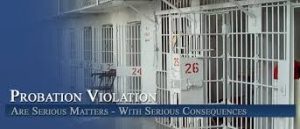
In Michigan when an individual is charged with probation violation the Court can either issue a summons directing the probationer to appear before the Court or issue an arrest warrant. The Court has an obligation under Michigan Court Rule 6.445 to make sure that the probationer receives written notice of the alleged violation.
When the probationer appears before the Court, the Judge must advise the probationer that he or she has a right to a contested hearing. The probationer has a right to retain counsel to defend him or her at the contested hearing, and may petition the Court for a public defender if the probationer is financially unable to afford a lawyer.
The probationer has the option to admit to the probation violation instead of having a contested hearing. If the probationer pleads guilty, he or she gives up the following rights:
- to be presumed innocent of violation of probation;
- to have a contested hearing;
- to require the prosecutor to prove by a preponderance of the evidence that he or she violated probation. Proving by a preponderance of the evidence means that the prosecution must demonstrate that it is more likely than not that probationer violated at least 1 condition of probation;
- to have witness(es) subpoenaed and testify on behalf of the probationer;
- to have witness(es) called by the prosecutor cross examined;
- to testify in his or her defense, or to remain silent and not have the silence used against the probationer in any way.
Before the Court accepts a plea of guilty to probation violation, the Judge must advise the probationer of the above rights. The probationer also must be informed of the maximum possible penalty for probation violation. The Court must determine that the plea to probation violation was freely, voluntarily, and understandingly made. The Court also must determine that there is factual support for the probation violation.
If a probation violation hearing is scheduled, or if the probationer pleads guilty and receives a later probation violation sentencing date, the Court must consider bond. The Judge has wide discretion to consider bond, and generally considers if the probationer is a flight risk, and if the probationer poses a risk of harm to himself/herself and/or the community at large. If the probationer remains in custody pending a probation violation hearing, the hearing must be held within 14 days of the arraignment. If the basis of the probation violation is an allegation of new criminal activity, the probation violation hearing can be adjourned until the outcome of the new case is determined.
If the probationer either admits or is found guilty of a probation violation, the Court has wide discretion as it relates to a sentence. The Judge can terminate probation, continue probation, modify the terms of probation, and/or incarcerate the probationer. If the probationer has a special sentencing status that keeps the conviction from appearing on a public record, the Court has the option of removing that status and entering a conviction if the probation violation is established. For drug related underlying convictions, the loss of the status to keep the conviction from appearing on the record will likely result in sanctions to the probationer’s driver’s license.
The probationer can seek appellate remedies. The probationer can retain or seek a public defender to pursue an appeal.
For probation violations it is always advisable to have the assistance of a lawyer. Probation violations can have severe consequences. For probation violations in Michigan my recommendation is to contact attorney Daniel Hilf of Hilf & Hilf, PLC.
 Michigan Criminal Attorneys Blog
Michigan Criminal Attorneys Blog

